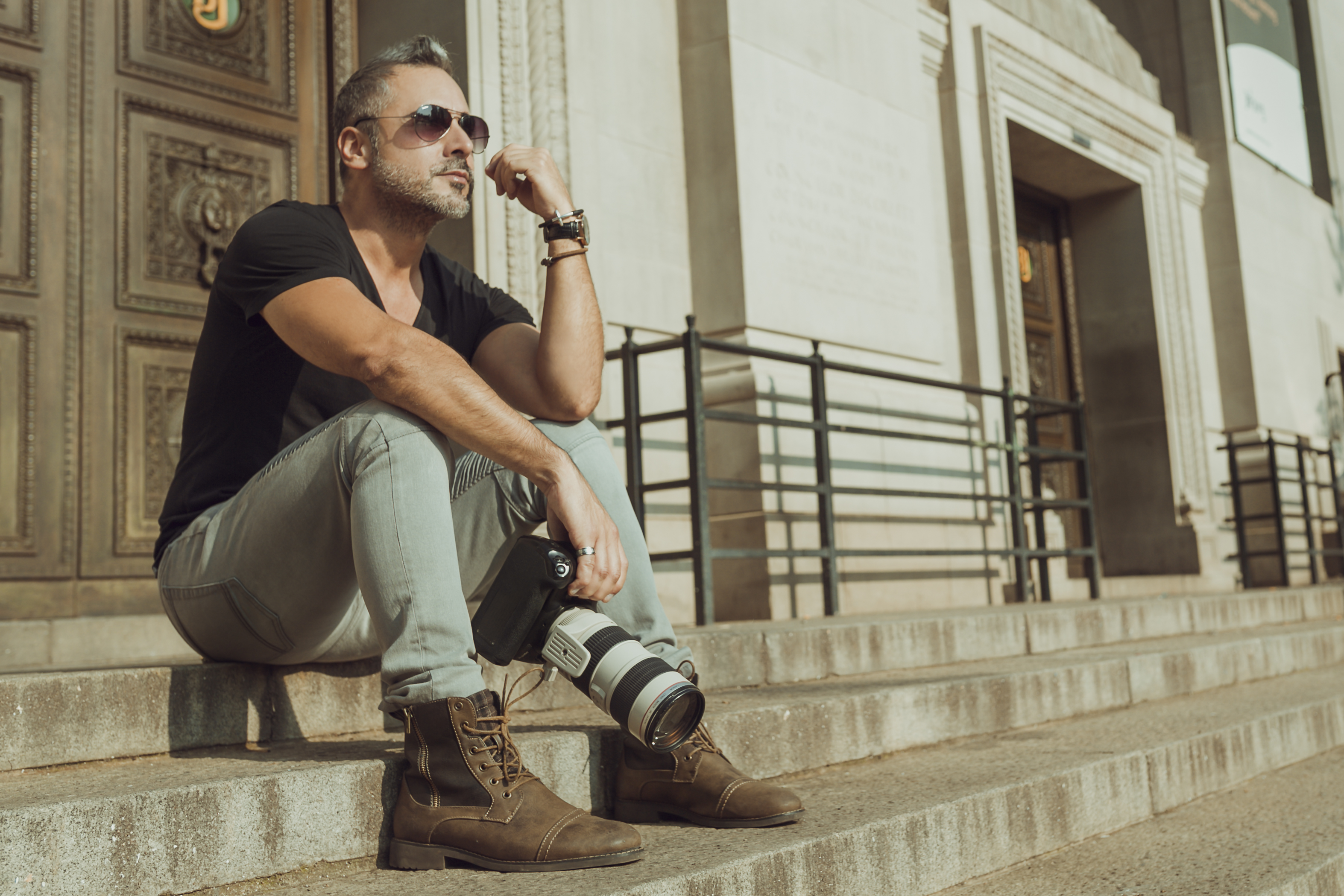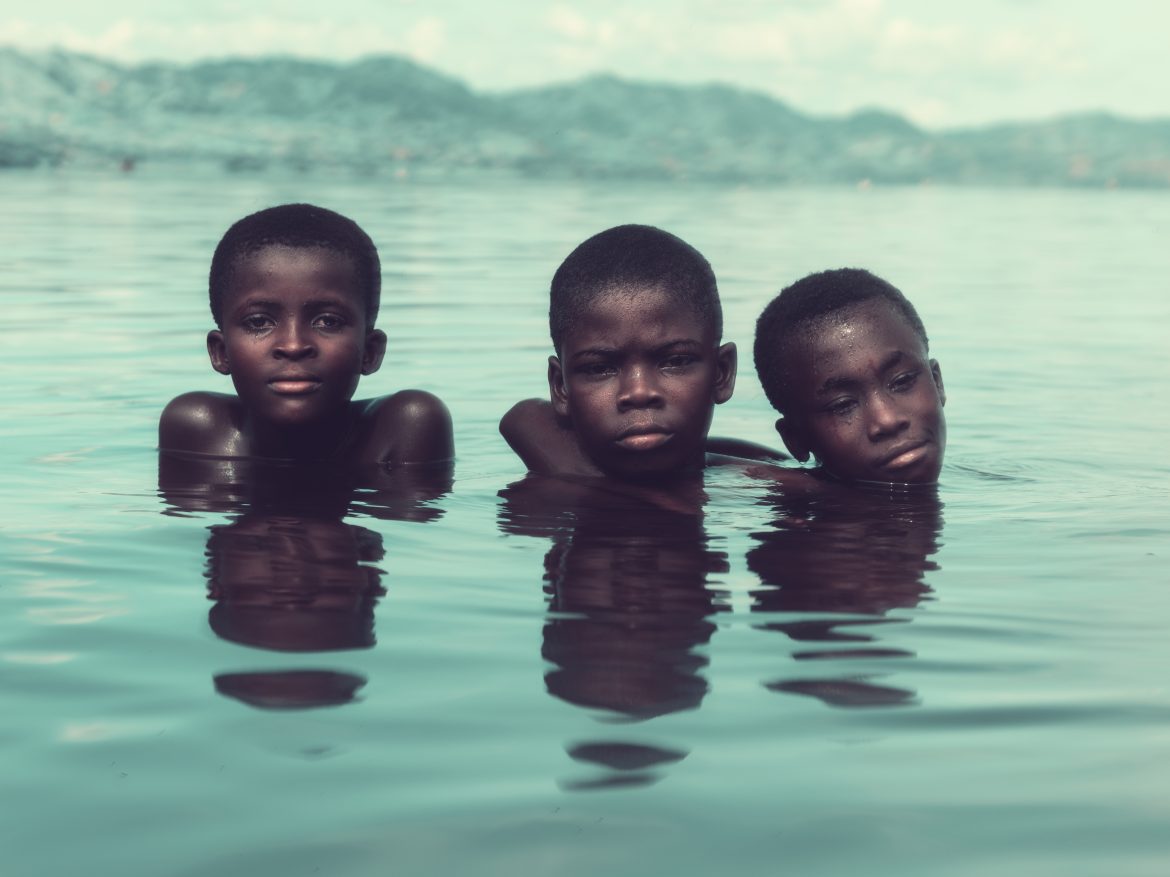Xavier Saer is arguably one of Johannesburg’s most sought after photographers, having worked for platforms such as Top Billing, South African Airway’s Sawubona, Kiernan Forbes, Blue Mbombo, Sarah Langa and Mampho Brescia to name a few, getting your picture taken by this man is definitely something worth ticking off your to do list.
A tale of having lived multiple lives, it is crazy to think he started out as an internationally published SAMA (South Africa Music and Awards) nominated songwriter and recording artist.
Hailing from the streets of Peru, he became a South African citizen in his teenage year but adopted the global citizen spirit.

We are on a telephonic call, interrupted by a delivery of his Maxi passport, completely on brand.
He has recently come back from a trip in Ghana and gave us an exclusive on his experience.
1. You recently posted the caption, ‘Every time you travel you learn something new, not just about the world but about yourself.’ What do you mean?
I travel a lot. Maybe 4-5 months a year and every time I travel I never come back the same. There is always something that shifts, something happens inside that opens my horizon, gets me out of my comfort zone and I always come back as a new person with a new perspective on things. I don’t think I can pin point things because every place is different, every location has a new experience and different people. Traveling is like a gift for me and that fact that I can do it for a living with my work makes me feel so lucky and blessed. Every place is different every experience is new. Often the language barrier is what I learn, we may not all speak the same language but body language and emotions, understanding somebody is not difficult and within that we are so similar as humans, we are the same throughout the world.
Language is a barrier.
2. In Ghana specifically what would you say you learnt?
I have been to Ghana before but the last time I went I was shooting a magazine cover for Top Billing and South African Airways, so it was work but this time I spent a much longer time and wasn’t in Accra as usual. I was in the area where the King of Ashanti stays in the South of Ghana. He flew me there to take pictures of his Kingdom and community, Ashanti is famous for its gold and an ancient powerful tribe of Ghana filled with history. I had no idea how much history there was in that area and how amazing the Ashanti people and the king is.
I went there to document the people and the culture.
I learnt so much from the food the food a little bit of the language and the history.
3. One experience you took from there?
You think that it is a 3rd world and then suddenly it becomes completely barren, the variation and change is quite visible quite quickly which is very interesting. I love the lake that I went and took pictures of. It’s probably one of the hottest places I have been in my life. You come out of the car and within 30 seconds you’re dripping in sweat. It’s so humid. People are so friendly, I got into the water with my camera and the kids fish for food, and it’s like their lunch money because they sell it to the restaurant. It was incredible to see. I’m not a shy photographer I try to get involved with people and my camera is not a cheap camera (laughs) So I went into the water with them just to see how it feels and they were so free and opened up themselves to me and my camera and we got some beautiful shots. There was many out of the whole experience and just being inside with the kids was one of them.

4. What the photograph with the kids the in water?
I am an observer. I am the kind of photographer that doesn’t like things that are posed. We have different languages of communication and there’s a soul language that we all have that we have often forgotten and it’s that language where you can just feel somebody and I feel very familiar with people and they open themselves up to me in ways they haven’t to other people and I like to photograph that because there is something there, we communicate on a soul level. Usually kids would run away or they would just not be themselves and these one were just themselves.. Those were moments I can’t relive but will treasure and live for.
The fishermen from the lake were just so friendly and open to me and it was just so amazing, that’s not posing that’s as natural as you can get.

5. How did you put the shot together?
I took my clothes off and jumped into the lake with my underwear to get those pictures, it was really all natural. I couldn’t do much. I was holding a R200 000 camera in my hand and I couldn’t drop it in the water so the magic just came together. It was a human thing, that soul language where you don’t need to explain anything. They knew I was there to take pictures and there was no threat. They just were themselves which is beautiful.

6. Is that what you often experience as a photographer, that soul language?
I am an empath so I feel people and feel for them and I like to feel what it’s like to be in their shoes and I think that is very important as a photo journalist, to feel for people. So every time I travel people can feel my intentions are pure so they open themselves up to me. It happens all over the world. In places where I don’t speak the language there is a common friendship or familiarity without knowing each other. It happened in Ghana, has happened in Namibia, the Middle East and Tanzania. Namibia. You can feel each other, it’s a gift.
7. You were there for the King of Ashanti, tell me about that?
The Majesty he invited me to his palace just to have a conversation with him, he was very surreal. He is kind and embodies what it is to be Royal. He is generous and an amazing human being and to me that was the highlight of the trip. Meeting he Majesty. He loves my work and that was very humbling.
8. How did you get connected to the King?
He found me through a friend of mine who is an Art dealer in Cape Town. He would buy my work as an investment.
9. What was your experience with the commoners in the city?
In the hotel making friends I met people to play tennis, I am also a runner so I ran half of the city and was the only one running at 35 degrees, people thought I was insane. I attracted a lot of attention there but everyone was still so friendly.
10. Your favourite meal there?
Jollof rice! There’s other food I can barely pronounce, I don’t even remember. It was spicy but not hot, I didn’t really know much about West African food so I discovered the fried plantain and Jollof rice. It is just so rich and spicy and not hot and the flavours were just amazing, I didn’t have one bad meal. You know when you travel you have a few bad meals but I did not have a single one. I have had it before but not in a way where I am having it every single day and you know when there’s an option to have something else you can and I couldn’t I had Jollof for breakfast.
11. One thing everyone going to Ghana should do?
Accra is a coastal city so you have the ocean but where I was there is a lot of history for example they have a sword almost like a calibre for the Kings people that is stuck on the ground and it’s impossible to take it out of the ground, it’s like stuck and the founder of the Ashanti people planted it in the ground and no one else can take it out of the ground it’s quite amazing, Muhammed Ali even tried back in the 60’s they believe it came from the sky. There is so much history to see like how they defeated the British for the Gold so learning about it is definitely something I think people should do.
That Sword story is sort of like King Arthur?
Yes very much so, it has been there for centuries and no one could remove it.
12. What is one of the biggest similarities between Ghana and South Africa?
South Africa is on a bigger scale but Ghana is a country that is growing quite quickly financially and getting a lot of investment so they’re getting things right, but like South Africa you find Sandton on the one side and Alexander on the other, just a few streets from each other, so the high level of inequality is quite visible.
13. Biggest differences between the two?
Ghana is getting rid of a lot of corruption so they are a shining example of how things can work which is quite different from the other African countries.
14. Would you consider moving to Ghana full time?
Not with the kind of work I do, you know the world is a village and I’m moving to Portugal next year so I’m closer to a lot of my work that happens there so Europe will become my playground. Unfortunately in South Africa we are limited to the country and are so far away from everywhere so it is harder for me to do a lot of work that I do in Europe so I will be there from next year.
15. What type of work can we look forward to seeing from Xavier in Portugal?
My commercial work. I will be back to shooting campaign, more fashion and I love doing hotel work because you get to stay there for free (laughs)
I love doing that.
I want to go into the wine industry because I am a complete wine fanatic so if I can go into shooting wine estates, wine makers and wine in the Portuguese area I would love to do that.
New adventure, new journey, more travelling. I just applied for a maxi passport that I got today so I am excited. I always say I’m still young!



